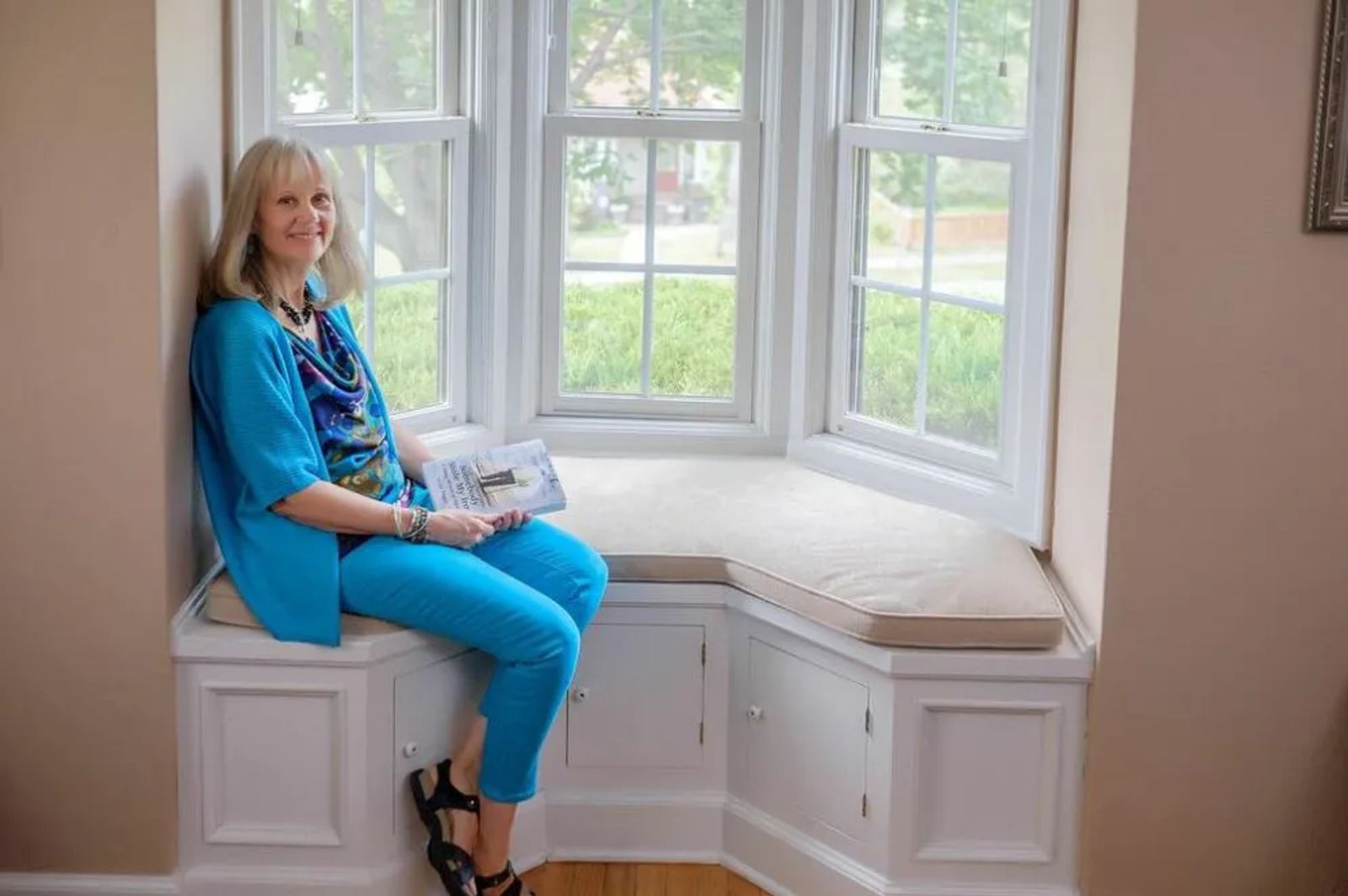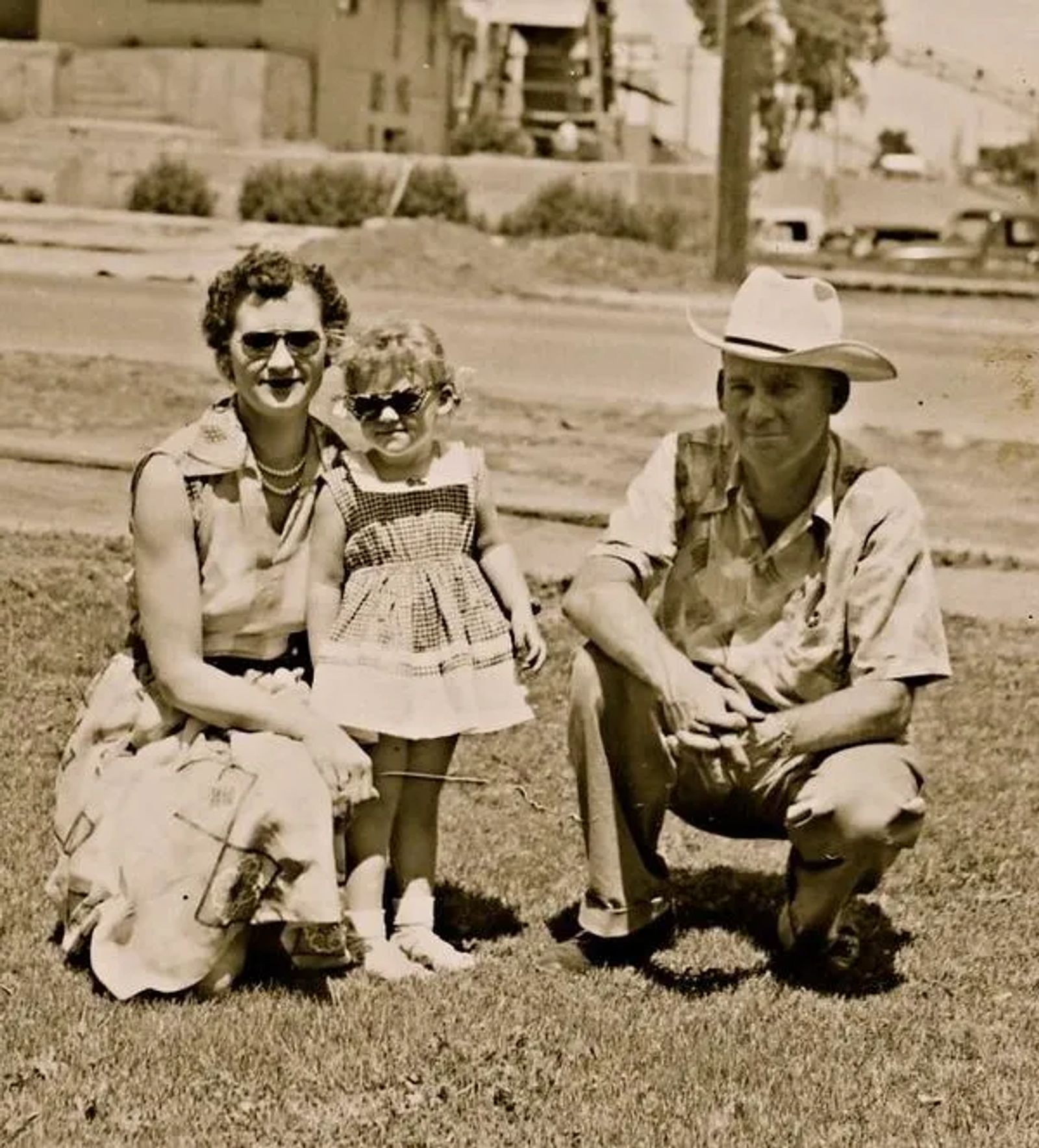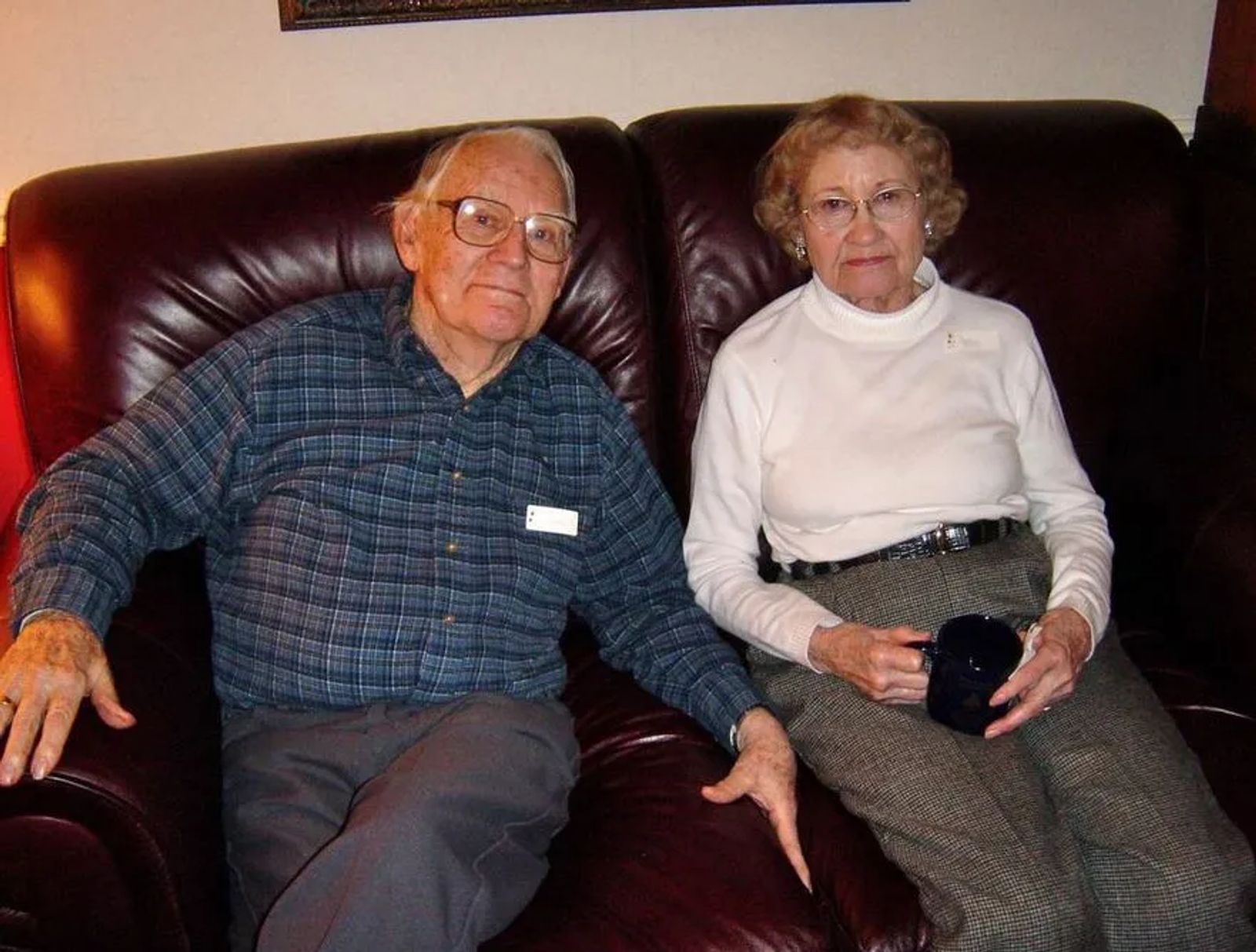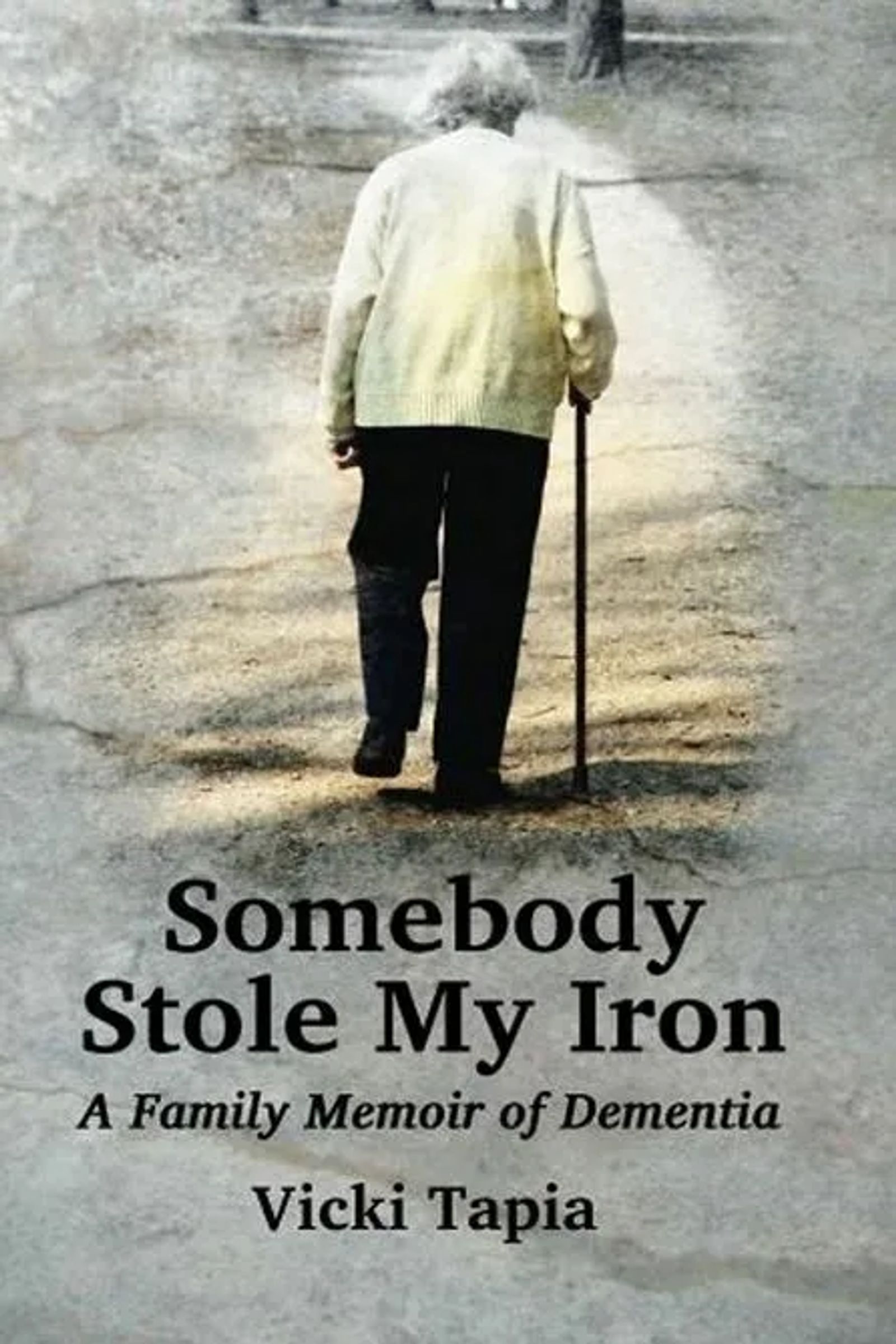
Caring for Parents With Dementia
Billlings' Woman Writes Book to Share Her Journey With Others
Vicki Tapia remembers the day in 2003 that set her on a path as her parents’ caregiver. It was long before she would delve into research on dementia and journal every finding. It was more than a decade before she'd use her notes to pen a book on the topic. Her extended family was gathered for a celebratory weekend at her parents’ home in eastern Montana. The doorbell rang. Her mother answered it. It was a granddaughter who’d come home as a surprise.
“Who are you?” Vicki’s confused mother asked the perplexed young woman in the doorway. In the excitement of the family gathering, no one paid much heed. Everybody laughed and the festivities went on. But it wasn’t a laughing matter. It was a warning of things to come.
Somebody Stole My Iron
In the weeks after the party, Vicki noticed her mother’s increasing complaints about her father, who struggled physically with Parkinson’s disease and prostate cancer. On the phone, Vicki’s mother was increasingly irritable. Telephone conversations became disjointed and often ended abruptly. Her mother fussed about inconsequential matters like a neighbor’s missing cat.
During a subsequent visit, Vicki noticed sour milk in her parent’s refrigerator and her mother went into a rage, accusing Vicki of questioning her housekeeping abilities. Sometime later, her mother exclaimed, “Somebody stole my iron!”
A medical assessment by a family nurse practitioner revealed her mom’s diagnosis of moderate Alzheimer’s disease. Living at home was no longer a viable option for Vicki’s parents. Ever dutiful, Vicki helped her parents sell their home, vehicles and the possessions accumulated over a lifetime and move to an assisted living facility in Billings. She found them new primary care physicians, specialists and dentists. She assumed the role of attorney-in-fact for their medical, financial and other decision-making. When subsequent concerns required changes in health care providers and facilities, Vicki handled those details as well.
Vicki’s mother died from complications of Alzheimer’s disease in 2008. Her father, who was diagnosed with Parkinson’s related dementia before the move to Billings, died at age 95, one year and one day later.

Double Whammy for Women
Women in their 60s are two times more likely to be diagnosed with dementia than breast cancer. They have a one in six chance of developing Alzheimer’s or another form of dementia in their lifetimes. Vicki’s mother was one of those women. In contrast, men in the same age group have odds of one in eleven for dementia. Her father was one of them.
Dementia is a degenerative brain disease that affects two spheres of the brain which control cognitive functioning, memory, orientation and other task-related activity. Alzheimer’s disease is the most common form of dementia. The Mini Mental State Examination (MMSE) is one tool to diagnose brain impairment. Brain scans and other neurological imaging can also be used for diagnostic purposes. While dementia is irreversible, medications can alleviate some symptoms.
Vicki remembers the call from her mother’s nurse practitioner regarding her mother’s dementia diagnosis in vivid detail.
“A (MMSE) score of less than 22 is considered abnormal. Your mother scored 18. Her prognosis isn’t good.”
Vicki’s mother received medication, but Alzheimer’s continued its deadly progression. She died within four years of her diagnosis. By 2025, the number of Alzheimer’s patients is expected to triple according to the National Alzheimer’s Association. In that same time frame, Alzheimer’s will join heart disease and cancer as one of the leading causes of death. (www.alz.org).
The difficulty for women isn’t just with the dementia diagnosis. Alzheimer’s and dementia are like “second hand smoke” for women. We are the family members who most often step forward as caregivers for loved ones. Caregiving demands take a personal and professional toll. It’s a double whammy for women.

As Vicki aided her parents in their transition to Billings, she quickly learned she couldn’t count on her brother, who lived out of state, for any backup. Yet, Vicki deems herself lucky. She had a supportive husband. Her children were grown and “out of the nest.” Her parents had financial resources to pay for independent care. She knew her way around the medical community from years serving as a lactation consultant for breastfeeding mothers. She had a flexible work schedule. Her parents were no longer 150 miles away.
Even with these factors in her favor, Vicki exhibited signs of caregiver burnout. She over-reacted to minor incidents at home and at work. She cried at the drop of a hat and often felt overwhelming sadness. She felt guilty for insisting on daily exercise time and weekend cycling excursions. She wondered if she should cancel a much-needed vacation with her husband.
“I had to learn that I couldn’t stop living my life,” Vicki says. “As women, it is hard for us to realize we must take care of ourselves before we can take care of others. I have days when I still feel guilty.”
Down the Rabbit Hole
To alleviate stress and to find solace during the long and sometimes dark, harrowing journey with her parents, Vicki kept a daily journal. It is a coping tool she’s used since girlhood to separate herself from and gain perspective on difficulties encountered.
“I have drawers full of journals written since I was 16,” says Vicki. “I find that I can write my way out of stress or sadness.”
In her journal, she kept notes of questions asked and answers received. She did Internet research and jotted down website addresses for the most helpful sites. She kept track of lessons she learned, sought out supportive associations and looked for books to guide her through what she describes as going “down the rabbit hole.”
Vicki didn’t set out to write a book about her experience as a dementia caregiver. But a close friend and colleague kept asking, “You are writing all of this down, aren’t you?”
“I stumbled through this experience,” Vicki admits. “I made mistakes. I beat myself up frequently. Then I realized that the lessons I’d learned might be of use to others.”
Before her parents’ needs consumed her non-work life, Vicki had published several articles about breastfeeding in professional journals. She contacted a niche publisher to determine its interest in her book project. Vicki’s book, Somebody Stole My Iron: A Family Memoir of Dementia (Praeclarus Press) was published in 2014.

Vicki’s mission is simple: to let other families know they aren’t alone and to provide a simple, easy to use resource containing the information she didn’t have.
“It has been very scary to put my story out there,” Vicki says. “We are all in this together. No one is untouched by aging and death. We all navigate these treacherous waters. If just one person who reads my book gains a sense of hope, it’s been worth it.”
Warning Signs for Dementia and Alzheimer’s
Memory loss that interrupts daily life.
Challenges in planning or problem solving.
Difficulty completing familiar tasks at home, work or during play.
Confusion with time or place.
Trouble understanding visual images and spatial relationships.
Problems with speaking and writing.
Misplacing things and the inability to retrace steps.
Decreased or poor judgment.
Withdrawal from work or social activities.
Changes in personality or mood.
Source: American Alzheimer’s Association (www.alz.org)
Good for your Heart and Good for your Head
Keeping Dementia at Bay
Maintain a regular exercise routine.
Eat a balanced diet with whole grains, fruits and vegetables.
Stay socially connected.
If you smoke, try to reduce your intake or stop altogether.
Lower your body mass index (BMI) if you are above normal ranges.
Moderate your alcohol intake.
Source: “How Fit Are You? Your Answer May Reveal Dementia Risk,” by Christopher Bergland, published in Psychology Today (February 27, 2014).
Vicki Tapia can be found on Facebook at Facebook.com/SomebodyStoleMyIron and Twitter @vicleetap where she regularly posts helpful information and links about Alzheimer’s, dementia and advances in treatment and caregiving. She is available for presentations to the medical community, at senior centers, book clubs and elsewhere. Her website and email addresses are: www. SomebodyStoleMyIron.com or vickitapia@gmail.com.












